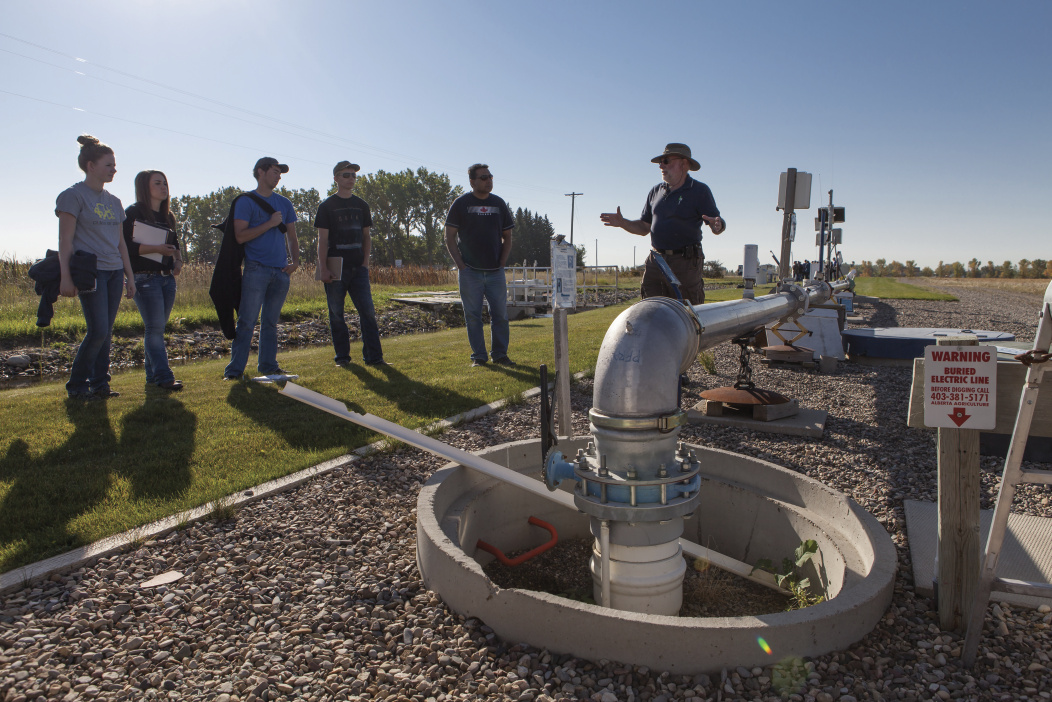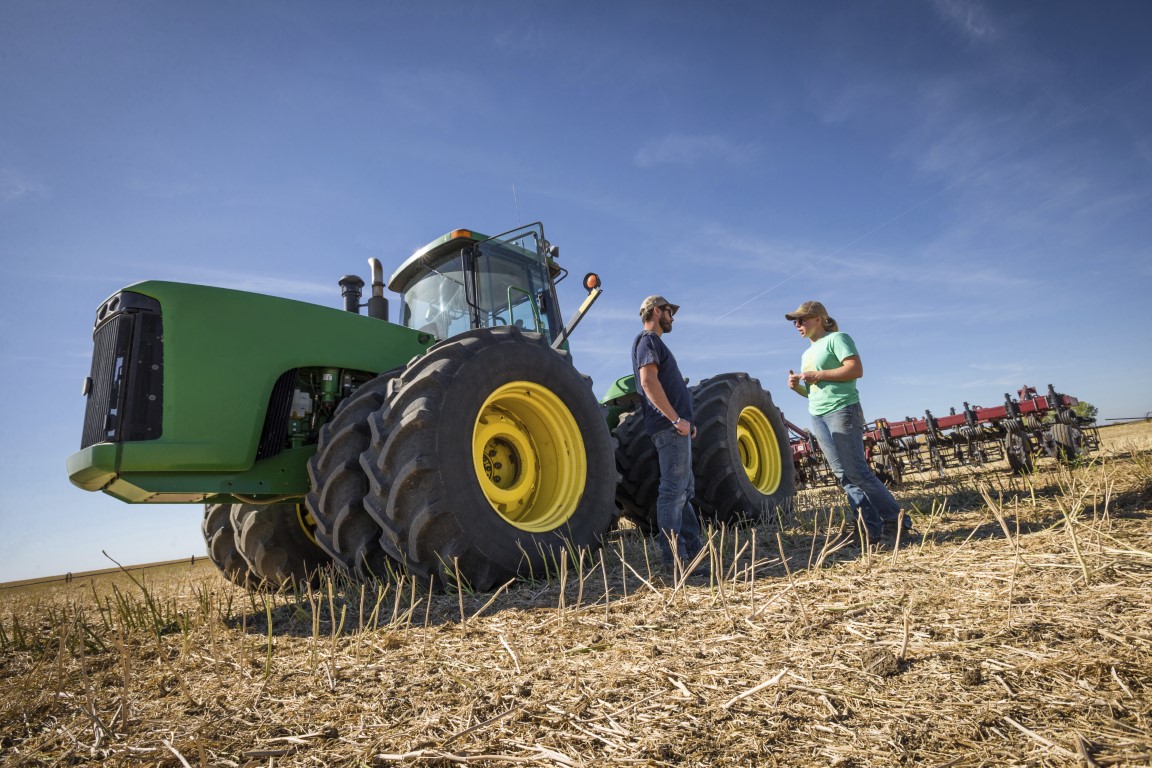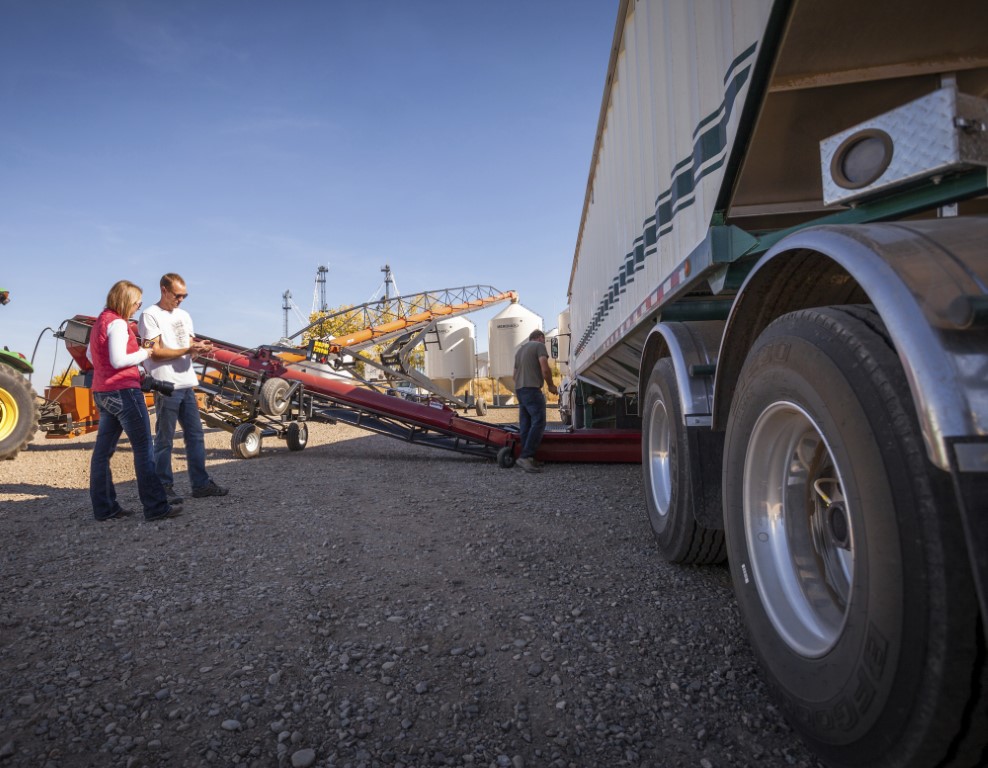
Flexibility to allow students to follow their passions is at the centre of changes to Lethbridge College’s Agriculture Sciences program. The changes to the program will allow students to graduate from Lethbridge College better prepared for a fulfilling career supporting the agriculture industry in southern Alberta and beyond.
The Agriculture Sciences program now includes a common first year that will introduce students to the basics of agriculture, such as botany, animal science, commodity marketing, soils, sustainable agriculture and communications. Students will then select from one of three majors in their second year – agronomy, animal science or a recently introduced agriculture business option. Previously, students had to choose a major prior to their first year of study.
The new format gives students more flexibility by allowing them to choose their major after acquiring a stronger knowledge base. Students will also have the opportunity to earn an additional diploma with just one extra year of study in a different major.
“Many students begin college unsure what area they would like to specialize in, or which area of agriculture they might find opportunity in,” says Dr. Terry Kowalchuk, Dean of the Centre for Technology, Environment and Design. “This common first year allows students a full year of flexibility to make that choice without losing any course credit or spending extra money on tuition before switching majors. Each of these majors is tailored to meet the needs of careers in those specific fields.”

Lethbridge College has been a leader in agriculture education for more than 50 years. Changes to the curriculum and the structure of the Agriculture Sciences program are driven by the demands of industry partners who employ the college’s graduates.
“Our industry advisory members meet with us regularly to help us update curriculum and direct our programming to meet the changing needs of industry,” says Byrne Cook, chair of the School of Agriculture. “We have considerable connections with local industry partners, many operated by Lethbridge College alumni, which directly contribute to the education of our students. During their studies, our students will have contact with over 30 different industry partners through tours, demonstrations and guest lectures, all of whom are excited to help us train future employees.”
Agriculture Sciences students at Lethbridge College also have an opportunity to get involved in a variety of research opportunities through the Centre for Applied Research, Innovation and Entrepreneurship. Construction of a 10,000-square-foot greenhouse, a new MOU with Farming Smarter and recent funding for the creation of the Integrated Agriculture Technology Centre are all additions to the college’s long-standing relationships with Agriculture Canada and Alberta Agriculture.
“This research does several things for us,” explains Cook. “It helps keep us current as agriculture changes; it attracts specialized researchers which can help us in the classroom and lab; it attracts additional funds for equipment and more research; and it provides research conferences and events for our students to attend right here on campus.”
 Cook says the Agriculture Sciences program has a nearly 100 per cent job placement rate following graduation. The changes to the Agriculture Sciences program take effect for the Fall 2020 semester, which begins Sept. 8. There is still time to apply for the Fall 2020 semester. Visit lethbridgecollege.ca/apply to learn how.
Cook says the Agriculture Sciences program has a nearly 100 per cent job placement rate following graduation. The changes to the Agriculture Sciences program take effect for the Fall 2020 semester, which begins Sept. 8. There is still time to apply for the Fall 2020 semester. Visit lethbridgecollege.ca/apply to learn how.
Lethbridge College’s Collaborative Centre of Excellence in Agriculture is fast becoming a hub for agricultural research and innovation. The college is a proven player in the industry, with faculty, staff and partners who are resourceful, understand farming, embrace innovation, focus on the college’s vision and lead the way with data-driven agriculture. The college’s Centre for Applied Research, Innovation and Entrepreneurship is a catalyst for economic growth, sustainability and social development in the region that brings together community organizations, researchers and students to collaborate on projects that use new or existing knowledge to solve real-world challenges with immediate practical applications.